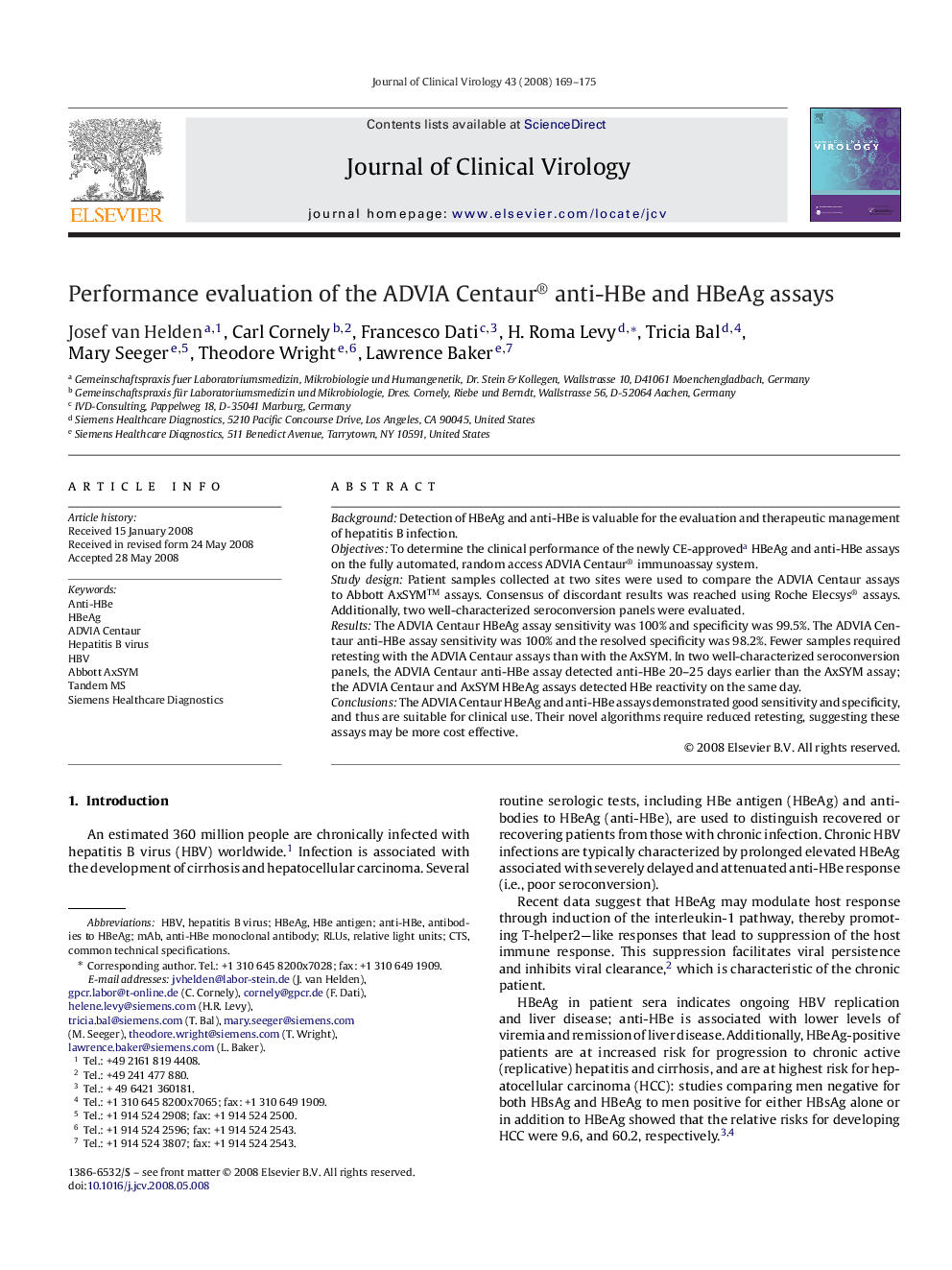| Article ID | Journal | Published Year | Pages | File Type |
|---|---|---|---|---|
| 3370540 | Journal of Clinical Virology | 2008 | 7 Pages |
BackgroundDetection of HBeAg and anti-HBe is valuable for the evaluation and therapeutic management of hepatitis B infection.ObjectivesTo determine the clinical performance of the newly CE-approveda HBeAg and anti-HBe assays on the fully automated, random access ADVIA Centaur® immunoassay system.Study designPatient samples collected at two sites were used to compare the ADVIA Centaur assays to Abbott AxSYM™ assays. Consensus of discordant results was reached using Roche Elecsys® assays. Additionally, two well-characterized seroconversion panels were evaluated.ResultsThe ADVIA Centaur HBeAg assay sensitivity was 100% and specificity was 99.5%. The ADVIA Centaur anti-HBe assay sensitivity was 100% and the resolved specificity was 98.2%. Fewer samples required retesting with the ADVIA Centaur assays than with the AxSYM. In two well-characterized seroconversion panels, the ADVIA Centaur anti-HBe assay detected anti-HBe 20–25 days earlier than the AxSYM assay; the ADVIA Centaur and AxSYM HBeAg assays detected HBe reactivity on the same day.ConclusionsThe ADVIA Centaur HBeAg and anti-HBe assays demonstrated good sensitivity and specificity, and thus are suitable for clinical use. Their novel algorithms require reduced retesting, suggesting these assays may be more cost effective.
